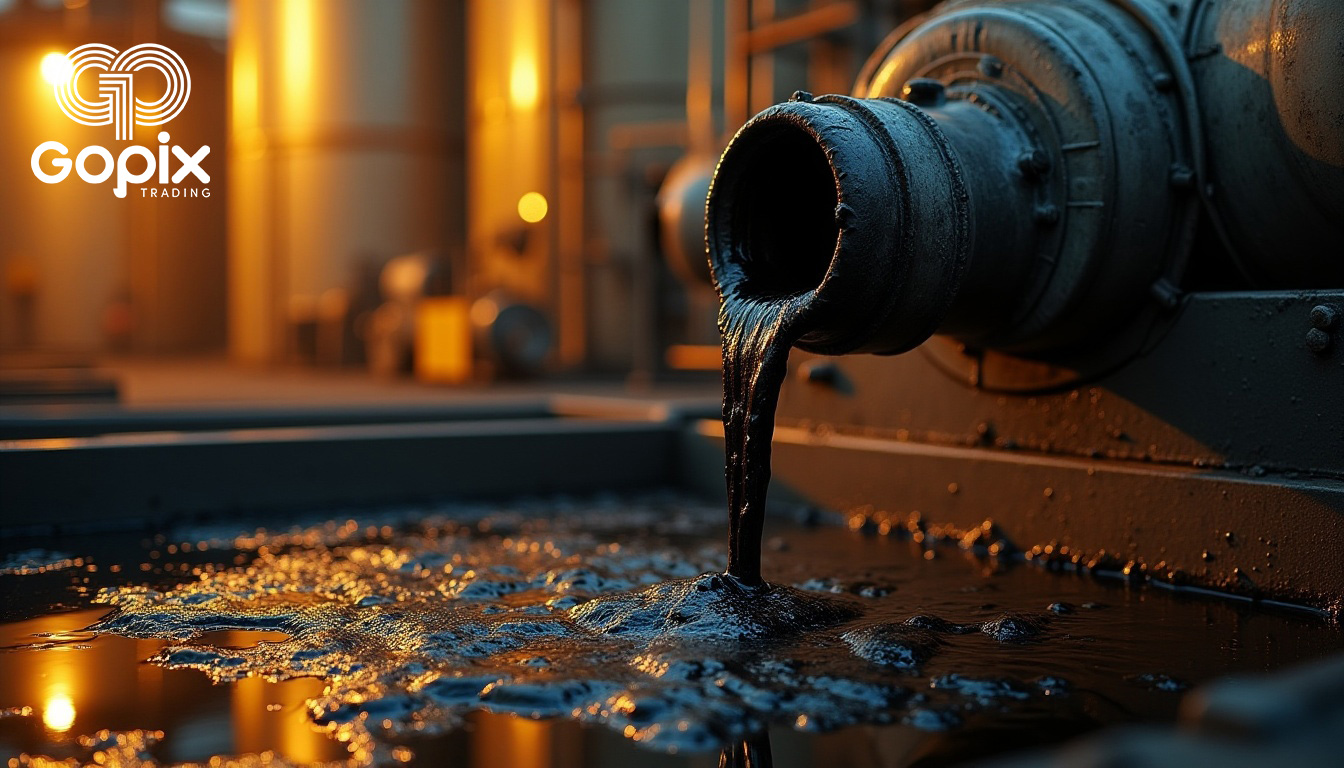What is D6 heavy diesel fuel?
D6 heavy diesel fuel, also known as Residual Fuel Oil or under other names like Bunker Fuel Oil, Bunker C, PS-400, is a high-viscosity petroleum product extracted from the final stages of crude oil refining, after separating lighter components like gasoline and kerosene.
D6 represents the bottom of the oil barrel, containing heavy hydrocarbon chains and requiring preheating between 104 and 127 degrees Celsius before use.
Despite its challenging properties, it remains the top choice for many major industries due to its high economic cost-effectiveness per unit of energy.
Technical and chemical properties of D6 fuel
- Density: Approximately 0.96 g/cm³
-
Viscosity: Extremely high (requires preheating for transport and use)
-
Sulfur content: May reach 3% or more depending on the production source
- Color: Dark black
-
Chemical composition: Rich in alkanes, cycloalkanes, and heavy aromatics
-
Standard specifications: ASTM D396, ISO 8217
-
D6 contains natural impurities such as water (up to 2%) and mineral sediment (up to 1.5%).
Comparison between D6 producing countries
| Country |
Quality |
Quantities |
Notes |
| Russia |
High |
Huge |
One of the largest global producers due to the abundance of refineries |
| Gulf countries |
Excellent |
Medium to high |
Regular and stable production with strict specifications |
| South America (Brazil, Venezuela) |
Medium to low |
Medium |
Some challenges in refining and environmental purity |
Important note: Russian D6 fuel is renowned for its high quality and chemical stability, making it ideal for giant power plants, while some South American production may require additional processing due to high sulfur content.
Where is heavy diesel fuel D6 used?
-
Power plants: An ideal source for producing thermal energy efficiently and at low cost.
-
Operating heavy industries: Steel, cement, and large refining factories that require a stable energy source.
-
Maritime sector: Giant ships, heavy cargo vessels, equipped with special heating systems that allow easy use of D6.
-
Industrial heating systems: Used in cold countries to generate heat for large residential complexes or industrial facilities.
Challenges and risks associated with using D6
-
Mandatory preheating: Failure to preheat may lead to fuel freezing and system shutdown.
-
High sulfur content: Leads to increased emissions, which may violate modern environmental standards.
-
Increasing environmental cost: Modern regulations demand reduced sulfur content through additional refining processes, increasing costs.
-
Seasonal price fluctuations: Demand and prices for D6 rise in winter due to increased need for heating oil.
-
Supply risks: Dealing with unauthorized brokers may result in receiving non-compliant shipments or delivery delays.
Global standards and classifications for D6 fuel
| Classification |
Specifications |
Comment |
| IFO 380 |
Maximum viscosity 380 centistokes |
The most common and widely used |
| IFO 180 |
Maximum viscosity 180 centistokes |
Easier to process |
| LS 380 |
Viscosity 380 centistokes with sulfur content less than 1.5% |
Suitable for environmental markets |
| LS 180 |
Viscosity 180 centistokes with sulfur content less than 1.5% |
Enhanced environmental grade |
| MDO (Marine Diesel Oil) |
Relatively cleaner marine diesel fuel |
Used in some modern ships |
| MGO (Marine Gasoil) |
High-quality marine gasoil |
Fuel for high-performance diesel engines |
Why choose Gopix as a strategic partner in D6 deals?
-
Trusted certified sources: We work with the largest refineries in Russia, the Gulf, and Kazakhstan.
- Independent quality inspections: All shipments undergo SGS or Intertek tests to ensure full compliance with specifications.
-
Professional contract management: We draft strong (SPA) contracts that include all legal and commercial guarantees.
-
Shipping flexibility: Delivery FOB or CIF based on client needs.
-
Precise follow-up for each deal: From proof of financial capability (POF) to issuing the bill of lading (BL) until product delivery.
Practical advice for businessmen and investors
Don’t measure a D6 fuel deal by price alone. Consider: sulfur content, required heating mechanism, seasonal market conditions, quality of laboratory tests, supplier professionalism, and their international market experience. A smart decision protects you from losses and ensures business continuity.
